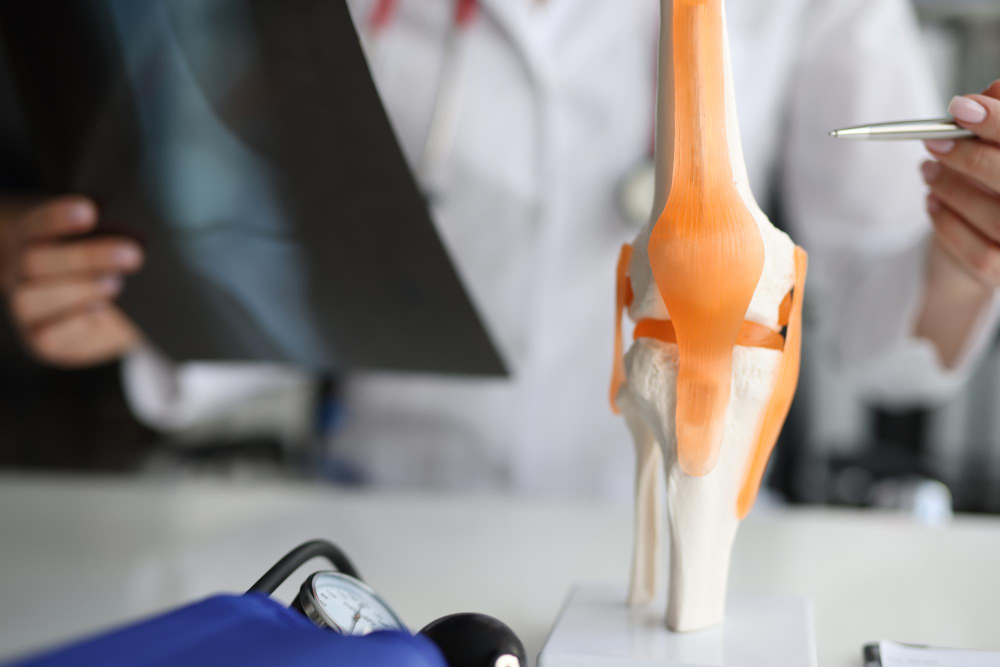Joint Replacement Surgery: What You Need to Know
Knowing what is involved and expected of the process is wise if your doctor suggests joint replacement surgery. A standard replacement removes worn-out joints by metal, plastic or ceramic prostheses. This post will guide the types of joint replacement surgery in India and other relevant information.
Types Of Joint Replacement Surgery
- Hip Joint Replacement Surgery
- Knee Replacement
- Shoulder Replacement
- Elbow Replacement
When Should You Go For Joint Replacement Surgery?

- Chronic Pain: If medications, physical therapy, and lifestyle modifications no longer bring relief for joint discomfort that has become chronic, this could be an indicator that damage has reached too great an extent for these methods to help.
- Limited Mobility: If mobility limitations interfere with daily tasks, medications, physical therapy, and injections alone may not suffice in controlling stiffness and movements – joint replacement may become the only effective treatment solution.
- Deformity: Progressive joint deformities associated with rheumatoid arthritis often limit the functions of body parts. Joint replacement surgery provides a solution that addresses such deformities to restore typical common structures.
- Conventional Treatment Fails: If other methods of medications and non-invasive techniques do not function accordingly, you have to check with the doctor whether it is right for you to undergo surgery.
- Quality of Life Impairment: In case of deterioration of general quality of life, such as missing recreational activities, social interactions, or doing a job, surgery is needed as a treatment.
What Happens During Surgery?
Knee arthroplasty surgery requires significant preparation, so pre-operation preparations, medical consultations and physical evaluations typically start a month before you proceed with the surgery.
Preliminary and diagnostic testing will include measuring blood count, performing ECGs, and urine analyses.
The surgery process will be undertaken either via general, spinal or epidural anaesthetics.
An orthopaedic surgeon will remove damaged cartilage and bone as part of this procedure. The surgeon will implant new metal, plastic, or both implants into your knee to restore alignment and functionality.
Recovery After The Surgery
An individual having knee replacement surgery typically stays hospitalized from 1 to 3 days. This depends on how well they respond and follow rehabilitation therapy programs.
There will likely be pain after surgery. However, medical staff will encourage their patients to get up and try walking, usually using some walking aid. The patients must follow the rehabilitation instructions throughout the recovery process.
Physical therapy sessions aim to strengthen your knee. Although physical therapy sessions may be uncomfortable, they significantly lower risk and complications in future complications.
Patients without support at home may require more hospital time.
Benefits of Joint Replacement
- Pain Reliever: Perhaps one of the primary advantages is relief from chronic joint pain. Replacing damaged joints with prostheses can help to minimize or eliminate the pain. This will help you live a better life.
- Increased Mobility: Wear-and-tear injuries can make daily walking or standing challenging. Hence, this makes daily movement more straightforward and more pleasurable than before.
- Improved Quality of Life: Pain-free and better mobility make doing things you enjoy easier. This will improve your overall happiness and help you lead a fulfilling life.
- Independence: For many individuals experiencing joint pain, daily tasks may require assistance from others for completion. With successful standard replacement surgery procedures, many can regain their independence when independently performing daily chores and activities.
Joint replacement can be an exciting journey with life-altering results. It provides freedom from pain-filled mobility to enjoy life again in all its simplicity.
Potential Complications & Risk of Joint Replacement Surgery

- Infection: Although rare, infections around a new joint can sometimes develop. Most infections can be treated with antibiotics. Yet, in severe cases, it may require further surgery to replace the joint again.
- Blood Clots: After surgery, there is the potential risk of blood clots forming in your legs’ veins. If these clots reach the lungs, they can become very dangerous. Hence, your doctor will monitor you and will prescribe medications.
- Loosening of Joint: Your new joint could loosen over time, leading to pain. In such an instance, additional surgery might be essential to correct it.
- Dislocation: Following hip or shoulder replacement surgeries, there is always the risk of dislocating their new joint(s), necessitating surgery to reposition them.
- Nerve and Blood Vessel Damage: Although uncommon, surgery may damage nerves near a replaced joint, resulting in weakness or numbness for some individuals, with possible blood vessels also becoming injured due to any anaesthesia used during procedures. In rare instances, blood vessels could also become compromised during this process, leading to injury as a possible outcome of injury during recovery.
- Prosthesis Issues may include breakage, stiffness, or instability with an artificial joint replacement requiring additional surgery.
Conclusion
This is all about joint replacement surgery and some vital information that one should consider. One must know the procedure, risk, and after-care for a smooth recovery. In case you are having unbearable pain despite numerous treatments, it is time to consult with a reputable doctor.

















